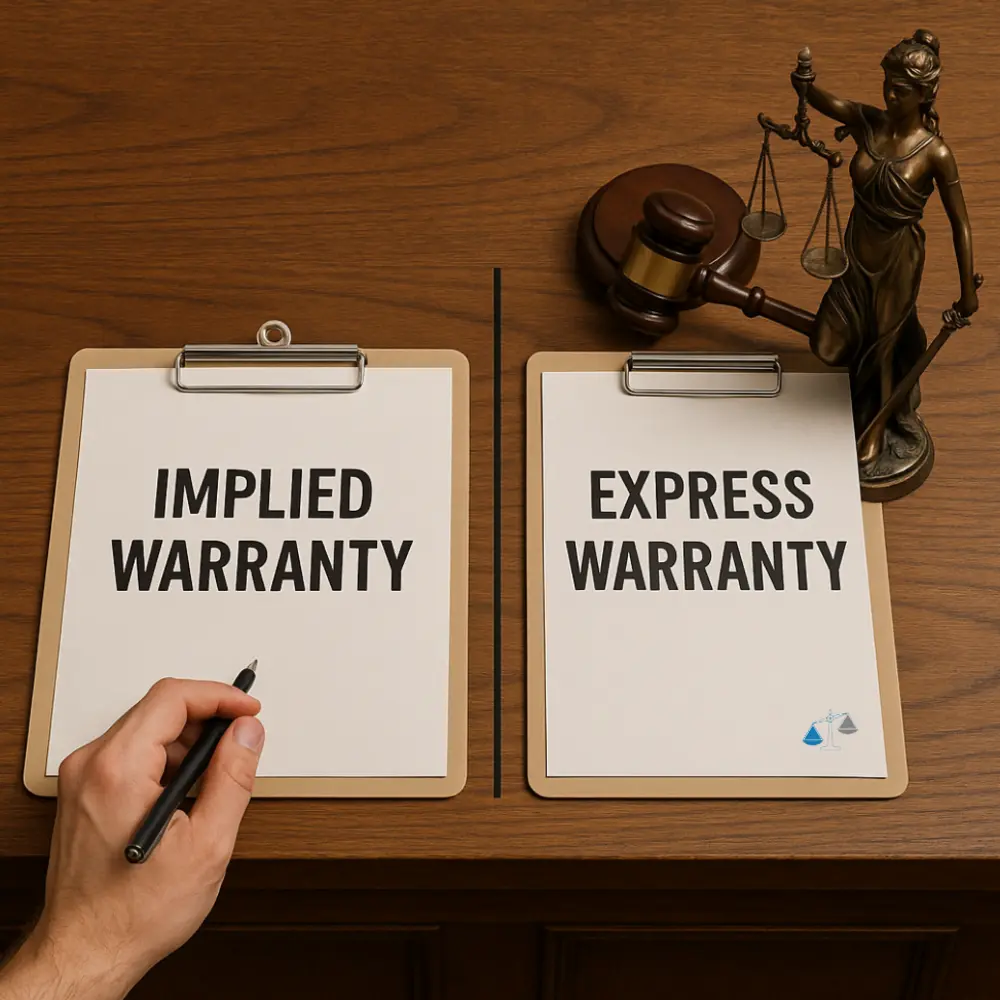What Is a Legal Implied Warranty? (Simple Definition)

- What Is a Legal Implied Warranty? (Simple Definition)
- Implied Warranty Simple Definition
- Real-Life Examples of Implied Warranties
- Importance of the Concept
- Comparison: Implied Warranty vs Express Warranty
- FAQ
- Closing
When consumers buy goods, not all protections are written in the contract. Some guarantees are automatically built into the transaction by law. These built-in promises are called implied warranties, and they protect buyers even when sellers don’t explicitly mention them.
Implied Warranty Simple Definition
Simple definition of legal implied warranty is an unwritten guarantee automatically imposed by law that ensures goods sold meet basic quality, functionality, or safety standards.
Real-Life Examples of Implied Warranties
- Warranty of merchantability: A refrigerator must keep food cold, even if not stated in the sales contract.
- Warranty of fitness for a particular purpose: If a customer asks for paint suitable for outdoor use, the product must meet that purpose.
- Used goods: Even second-hand products may carry implied warranties if sold by a merchant.
Importance of the Concept
Implied warranties are important because they protect consumers from defective or unsuitable goods. They ensure fairness in transactions and hold sellers accountable for meeting minimum legal standards, even without written promises.
Comparison: Implied Warranty vs Express Warranty

Implied Warranty: Automatically applies by law, not written or spoken.
Express Warranty: Specifically stated by the seller, either verbally or in writing.
| Feature | Implied Warranty | Express Warranty |
|---|---|---|
| Basis | Imposed by law | Explicit promise |
| Consumer Awareness | May not be known | Clearly communicated |
| Example | Toaster must work as toaster | “One-year free repair” claim |
FAQ
1. What does implied warranty mean in law?
It is an unwritten legal guarantee that goods meet minimum quality and fitness standards.
2. What are the two main types of implied warranties?
Warranty of merchantability and warranty of fitness for a particular purpose.
3. Do all goods have implied warranties?
Most goods sold by merchants do, unless clearly disclaimed under law.
4. How is an implied warranty different from an express warranty?
Implied warranties are automatic by law, while express warranties are explicitly stated.
5. Can sellers disclaim implied warranties?
Yes, but disclaimers must be clear, conspicuous, and legally permitted.
Closing
A legal implied warranty ensures consumer protection by guaranteeing basic product quality and suitability, even without written promises. It upholds fairness in commerce and strengthens trust between buyers and sellers.






